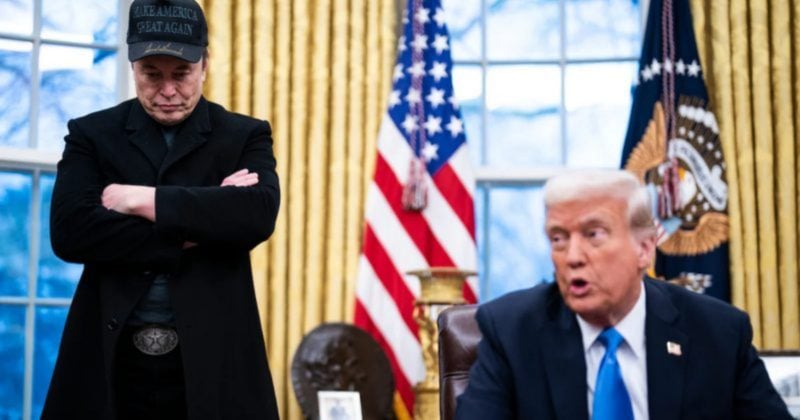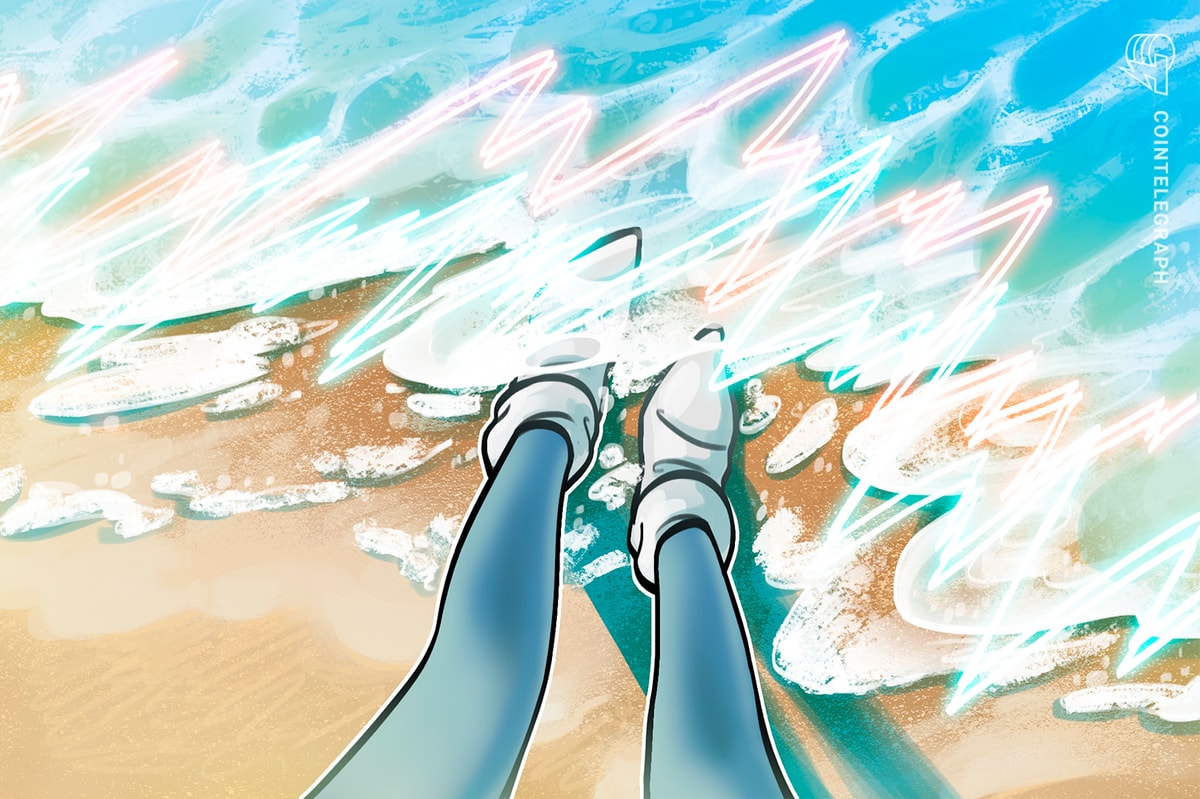The highly anticipated conclusion to Universal Pictures’ adaptation of Wicked has finally hit theaters, tying together the story we thought we knew about Dorothy’s arrival in Oz. However, we don’t get to see much of the teen girl from Kansas after her house lands on top of the Wicked Witch of the East and she is sent off to see the Wizard (Jeff Goldblum) with shoes that don’t belong to her, thanks to Glinda (Ariana Grande) being petty.
Wicked: For Good shines enough on the incredible music and the powerful relationship between Elphaba (Cynthia Erivo) and Glinda to distract from how it very minimally grazes over the beats of L. Frank Baum’s literary classic and MGM’s The Wizard of Oz. Yet, by the end there were so many choices made that left more questions than answers.
We’d hoped for an inspired take by visionary director Jon M. Chu, whose first Wicked installment set up a whole new version of Oz audiences around the world have fallen in love with. While the stage musical focuses on its good and bad witches, its cinematic release centered Nessarose (Marissa Bode), Fiyero (Jonathan Bailey), and Boq (Ethan Slater) as part of the ensemble. Along with them, so many setups were left unfulfilled in ways that made us want to take a trip down the yellow brick road for a conversation with the Wizard.
Here are the searing questions that still haunt and hurt us after watching Wicked: For Good.

1. Who supports the Wicked Witch, actually?
 © Universal Pictures
© Universal PicturesThere’s not much explanation as to whether Elphaba’s efforts to free the animals have, at least over the years, garnered her any support in between the events of Wicked and Wicked: For Good. Oz hates her for presumably stealing the Grimmerie and helping the animals escape. But she’s also hated by the animals for helping—namely, the winged monkeys and the Cowardly Lion. Meanwhile, Glinda and Fiyero go along with finding her through the Wizard and Morrible’s narrative that she needs to be apprehended but don’t publicly stand up for their friend.
2. Why isn’t Dorothy’s story seen in Wicked?
In the stage musical, it makes sense for the Dorothy of it all to be done in shadowplay, considering it’s not a two-part story. The Broadway audience goes in knowing this is an alternate take on the events of The Wizard of Oz and doesn’t really need to be filled in. Wicked: Part One, however, builds out more of the relationships, including Elphaba’s sisterhood with Nessarose and the meaning of their mother’s shoes.
For some viewers, Wicked was their first introduction to the world of Oz, and the expansion of the story would seem to lend itself to a retelling of Dorothy’s role as a way in to all of the drama between the three witches. That, and there are a lot of Dorothy dolls and figures in playsets that made it feel like we’d get a bit more in Wicked: For Good about how a teen from Kansas is accidentally used as a pawn to kill Nessarose and then enlisted to melt Elphaba.
It’s really a disservice to a character who could have used a a reimagining through Chu’s creative lens to get a new generation of teens to relate to her. I mean, teens being used as political pawns? Evergreen. We get that she’s not a main character here, but she could have been used to solidify Elphie and Glinda’s love for one another, and not as a box to check.
3. Why was Fiyero playing dumb around Tin-Man Boq?
 © Universal Pictures
© Universal PicturesYes, Fiyero gets turned into the Scarecrow, who joins Dorothy on the yellow brick road with the lion cub he saved, who seems to have no recollection of him but blames Elphaba for his cowardly nature, and his college friend, who has always been obsessed with his girlfriend and now has a literal ax to grind. In Wicked: For Good, Boq tries to escape the misery of being stuck with Nessa to stop Glinda from marrying Fiyero right before the Thropp sisters make him into a monster, and his motivation is still to get to Glinda even after that. He stares really hard at her from a crowd while spouting off his grievances against Elphaba for saving his life. Meanwhile, Glinda probably still doesn’t recognize Tin-Biq or her role in his male loneliness epidemic victimization. Yet, somehow, we’re supposed to believe he meets this teen girl and suddenly wants the Wizard to give him a heart? And doesn’t Fiyero’s guard suit match the Scarecrow’s outfit? Or does Fiyero say he also hates Elphaba for turning him?
4. When do Fiyero and Elphaba hatch the plan to fake her death?
The poppy field that the Wicked Witch of the West enchants to lull Dorothy and the Lion to sleep (set up at Shiz!) could have helped fill in this blank. There was no exchange between them—other than maybe giving us a moment of Fiyero seemingly turning against her because he’s “dumb” now to fool the audience and Boq—but that we could have later seen as the instant where they quickly hatched a plan before Boq came into the picture.
5. Is Boq still stalking Glinda?
 © Universal Pictures
© Universal PicturesThis one haunts me the most because even when he had a heart, he was down bad for her, and then he gets one from the Wizard. So wouldn’t he just go back to being a stalker creep, but now looking more horrifying? Glinda, you in danger, girl. But in all seriousness: Boq not getting a resolution after getting established as a core ensemble member doesn’t work.
6. Was the Wizard ever thought of as a fraud?
After he leaves Oz upon realizing he just had his daughter killed, he basically takes his balloon back sans Dorothy as per the book. Everyone in the Emerald City is happy to see him go, but why? It’s not because they really hated him; he used them against the animals to create conflict to bolster himself, but to what end? Thanks for doing nothing, I guess.
7. Did no one clock Madam Morrible as the true bad guy besides Elphaba and Glinda?
 © Universal Pictures
© Universal PicturesMorrible puppeteering the Wizard to further her cause against the animals never made sense. It might have had she gotten a backstory as to her hate of animals, maybe being related to Doctor Dillamond for being smarter than her, and knowledge being more respected than power. That kind of framework would have explained her truly wicked need to take it out on animal kind. Also, her punishment? Too tame. She enslaved animals and killed the mayor of Munchkinland. Those monkeys had better have flown her straight to Elphie for real revenge.
8. Why does caging animals remove their ability to speak?
Besides the obvious symbolism, it’s never explained if the cages make the animals normal human-world creatures or if Morrible magicked away their voices. We see Dillamond return to Shiz at the end to teach, but there are no words or any sort of redemption of Elphaba in his class, at least!
9. How does Dorothy get home?
Elphaba gets a whole song about how “there’s no place like home,” a mantra that gets Dorothy home with the tapping of the magic witch shoes, most famously seen in The Wizard of Oz, but that is weirdly set up here with no payoff. There could have been a reprise at Nessarose’s feet, where Elphaba sees that home could never appreciate her, which would a) explain why she chooses to leave Oz with Fiyero, and b) could have been overheard by Glinda to help her come to terms with her role as the Good Witch for the people. It would have been fitting for her to use those words as the spell to affirm herself as a new leader while using it to magic the Thropp slippers to get Dorothy back to Kansas.
10. Why does Elphaba abandon the shoes and Oz?
In Wicked: For Good, Elphaba’s motivation is to stay in Oz to defend it despite it pushing her out, then it’s getting her mother’s shoes back, but after her heart-to-heart with Glinda, it all is just supposed to change. It’s so odd to see her relinquish her fight to encourage her friend to use her pretty privilege for good and find the magic within herself to do what she couldn’t because she’s green. But it’s okay because she’s got her straw prince and walks off to a distant land, which may or may not be the human world. Doesn’t matter.
Want more io9 news? Check out when to expect the latest Marvel, Star Wars, and Star Trek releases, what’s next for the DC Universe on film and TV, and everything you need to know about the future of Doctor Who.









 English (US) ·
English (US) ·